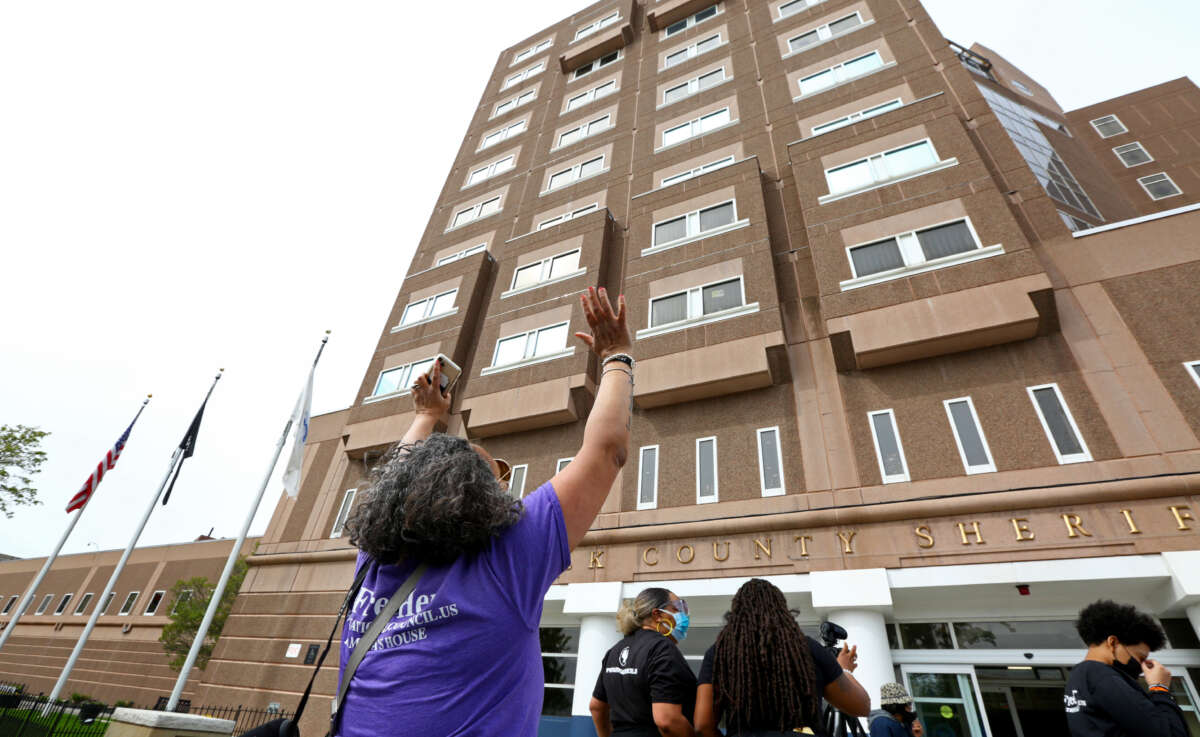Part of the Series
Despair and Disparity: The Uneven Burdens of COVID-19
The rate of deaths in U.S. prisons during the first year of the COVID-19 pandemic increased dramatically, as lawmakers largely ignored the effect of the pandemic on imprisoned people, a grim new analysis found.
According to data from researchers at the University of California, Los Angeles, deaths in state and federal prisons rose by nearly 50 percent during the first year of the pandemic, despite the fact that the population of people in prisons decreased by 10 percent. Overall, at least 6,182 people died in prisons in 2020.
This rate is more than double the increase in the rate of deaths across the U.S. overall and tops the increase in deaths at nursing homes, where COVID deaths were especially high. The rate of deaths in prisons more than doubled in six states — Alaska, Michigan, Montana, New Jersey, North Dakota and Rhode Island.
As COVID-19 first swept the U.S., the virus was ravaging prisons. While a few states implemented early-release programs in response to the pandemic (only to place people in another form of imprisonment), many lawmakers and officials simply ignored the problem of COVID spread in prisons or allowed it to get worse; the Federal Bureau of Prisons lowered the rate of compassionate releases and the agency used only a fraction of the COVID drugs that it was allotted to help treat people in prison, compounding upon already inadequate health care for imprisoned people.
Meanwhile, many prisons doubled down on the cruelest forms of punishment, increasing the number of people in solitary confinement, choosing to abuse, neglect and torture people rather than releasing them in compliance with social distancing measures to avoid infection.
The UCLA data is the first comprehensive report of pandemic-era prison deaths. The UCLA Law researchers said that the data is meant to provide the public with knowledge about prison mortality rates as federal and state governments have failed to keep proper records.
Aaron Littman, Acting Director of UCLA Law COVID Behind Bars Data Project, told The New York Times that the public should know what happens to people when they are thrown into prison.
“It is essential that we as the public know what happens in institutions that incarcerate people in our name,” Littman said. “But unfortunately that has never been the case to the appropriate extent, and it has become worse over time.”
Data on deaths in prisons has been suppressed for decades; Congress passed a bill to increase transparency of deaths of imprisoned people in 2000, known as the Death in Custody Reporting Act, but the Government Accountability Office found that the vast majority of states were submitting incomplete reports under the law.
Further, in 2021, the Bureau of Justice Statistics, a branch of the Department of Justice, announced that it was going to stop collecting such data entirely. Combined with the fact that many states have stopped reporting COVID cases in prisons, data around deaths of imprisoned people is woefully lacking.
Media that fights fascism
Truthout is funded almost entirely by readers — that’s why we can speak truth to power and cut against the mainstream narrative. But independent journalists at Truthout face mounting political repression under Trump.
We rely on your support to survive McCarthyist censorship. Please make a tax-deductible one-time or monthly donation.
